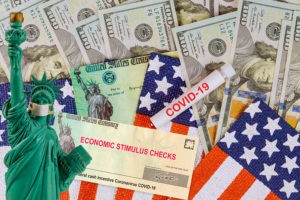When will Social Security Stimulus Checks Arrive?

There have been a few hiccups in the distribution of stimulus checks, and some people may have to wait months before their check is delivered. Most of us are able to monitor the status of our check by using the IRS’s Get My Payment tool. However, for many Social Security beneficiaries, they’ll see a message that says “Payment Status Not Available.” That’s because most Social Security recipients don’t file tax returns.
Motley Fool’s ’s recent article entitled “Social Security Beneficiaries: Here’s When You’ll Get Your Stimulus Check” advises that if you are unable to track your payment, here’s when you can expect to receive your stimulus money if you’re collecting Social Security benefits.
Those first to see their stimulus checks will be the ones who have their direct deposit information on file with the IRS. The agency will deposit the stimulus check straight to their bank account.
However, if you receive your benefits in the mail via paper check, or if you’re not certain if your bank account information is on file, you can provide your information through the Get My Payment tool. This will help you get your check faster.
While using direct deposit will ensure you get your check the quickest, you can get your check in the mail instead if your bank account info isn’t on file. The IRS started sending stimulus checks the week of April 20, and it expects to mail out about five million checks per week. At that rate, it could take 20 weeks for all checks to be delivered.
Whether you receive your check in days or months will depend on your income. The IRS is sending checks in a particular order, and those with the lowest-income individuals will get their checks first. If your income is nearer to the $99,000 per year income limit (or $198,000 per year for married couples), you might not receive your check until late August or early September.
If your income is somewhere in the middle, it’s estimated that you’ll get your check sometime this summer.
If you’re receiving Supplemental Security Income (SSI), you’ll see your stimulus payment in early May, according to the IRS. Whether you receive that money via direct deposit or paper check will be based on whether the IRS has your bank account information on file.
The COVID-19 pandemic has caused a real financial hardship for millions of Americans, and waiting for your stimulus check can be stressful, especially if money is tight and you need the extra money. However, it’s a little easier when you can at least calculate when your cash is expected to be delivered.
For more information on Social Security benefits see https://galligan-law.com/social-security-benefits-what-happens-when-a-spouse-dies/
Reference: Motley Fool (April 27, 2020) “Social Security Beneficiaries: Here’s When You’ll Get Your Stimulus Check”

